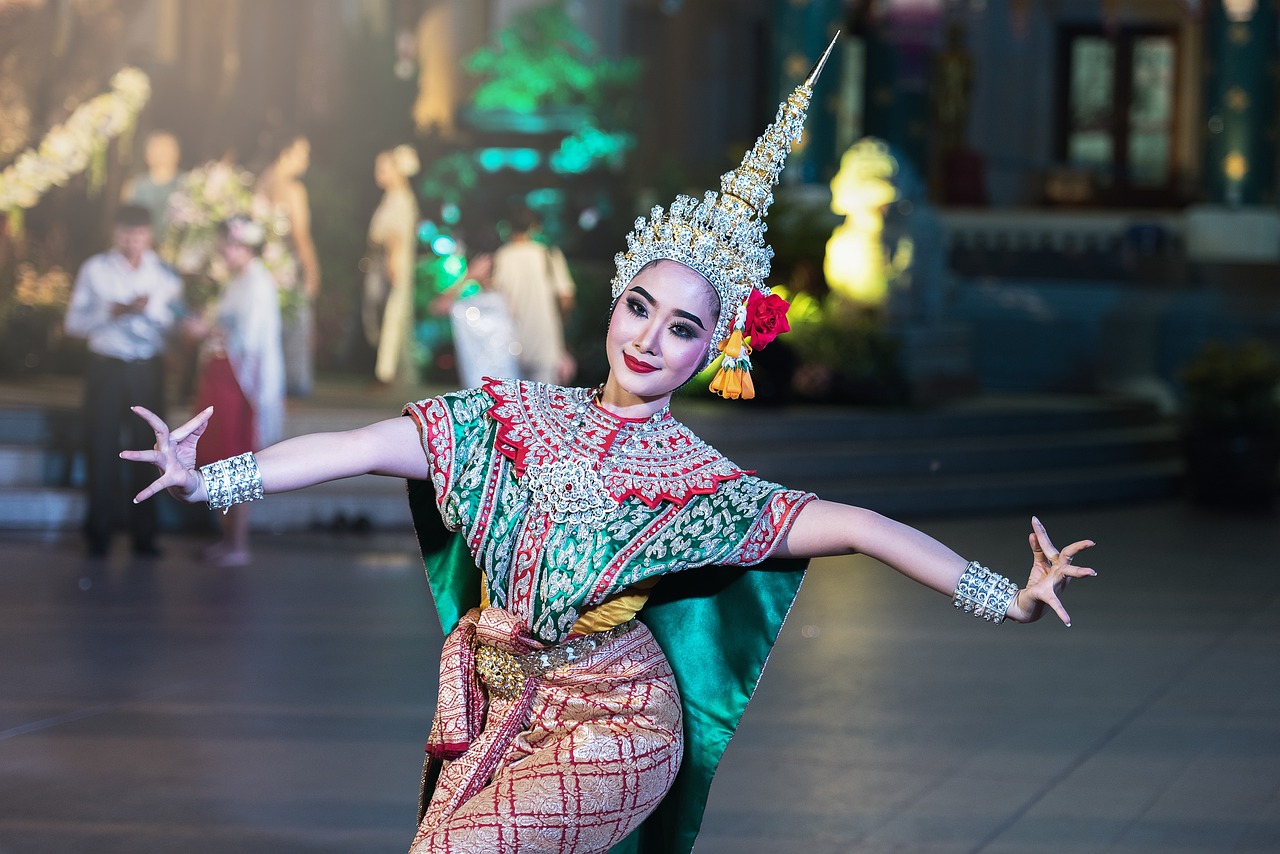The Affectionate Nature of the Somali
The Somali people are renowned for their deep-rooted affectionate traits, which permeate every aspect of their lives. This article delves into the rich tapestry of cultural practices, familial bonds, and community interactions that cultivate a profound sense of love and belonging among the Somali. From the moment you step into a Somali gathering, you can feel the warmth radiating from the people, as they engage in heartfelt conversations, share laughter, and express care for one another. It's like stepping into a cozy home, where every corner is filled with stories of love, resilience, and unity.
Understanding the affectionate nature of the Somali requires a closer look at their cultural expressions. Poetry, for instance, is not just an art form; it is a vital means of communication that conveys emotions and sentiments. Somali poetry often reflects themes of love and connection, serving as a bridge between individuals and communities. Similarly, traditional dances are infused with affection, showcasing the joy and camaraderie that define social interactions. These cultural practices are essential in fostering emotional connections, as they allow individuals to express feelings that might otherwise remain unspoken.
At the heart of Somali life lies the family, which is the cornerstone of their affectionate nature. Family bonds are characterized by unwavering loyalty and support, creating an intricate web of relationships that nurture love. The dynamics within Somali families are fascinating, as they reveal how affection is not just a fleeting emotion but a lifelong commitment. Parents instill values of respect and nurturing in their children, shaping their emotional well-being and preparing them to carry forward the legacy of love. The parent-child relationship is a beautiful dance of guidance and affection, where every interaction is steeped in care.
Moreover, the role of the extended family cannot be understated. In Somali culture, the extended family is a vital support system that reinforces the importance of community. It’s not uncommon for a child to grow up surrounded by a network of aunts, uncles, and cousins who all contribute to their upbringing. This collective approach to raising children ensures that affection flows freely and abundantly, creating a rich tapestry of love that envelops each family member. Elders play a crucial role in this dynamic, imparting wisdom and values that foster affection and strengthen familial ties.
As we explore the affectionate nature of the Somali, we cannot overlook the significance of community and social connections. Somali communities are characterized by their strong social networks, where affection is shared through communal activities and gatherings. These events are not merely social occasions; they are opportunities for individuals to connect, celebrate, and support one another. Whether it’s a wedding, a cultural festival, or a simple gathering, the atmosphere is charged with love, laughter, and a sense of belonging that is palpable.
In addition to these cultural and familial expressions of affection, the Somali people have unique communication styles that convey warmth and connection. Greetings are particularly important, often involving elaborate exchanges that signify respect and care. A simple “salaam” can transform into a heartfelt conversation, as individuals inquire about each other’s well-being and share stories. This emphasis on greetings sets the tone for social interactions, creating an environment where affection is not only welcomed but expected.
Lastly, humor and playfulness play a significant role in Somali interactions. Laughter is a universal language, and in Somali culture, it serves as a tool for building affection and easing tensions. Whether through witty banter or playful teasing, humor fosters a sense of joy that strengthens relationships. It’s a reminder that amidst life’s challenges, there is always room for laughter and connection, reinforcing the idea that affection is not just about serious moments but also about shared joy and lightheartedness.
- What are some common expressions of affection in Somali culture?
Common expressions include poetry, dance, and elaborate greetings that reflect respect and care. - How important is family in Somali society?
Family is central to Somali life, with strong loyalty and support systems that nurture affection. - What role do elders play in Somali families?
Elders impart wisdom and values that foster affection, ensuring love and respect are passed down through generations. - How do humor and playfulness contribute to Somali relationships?
Humor and playfulness help build affection and ease tensions, highlighting the importance of joy in relationships.

Cultural Expressions of Affection
Somali culture is a vibrant tapestry woven with rich traditions that express affection in various forms. From the lyrical beauty of poetry to the rhythmic movements of dance, these art forms serve as vital means of communication and emotional connection among individuals and communities. Poetry, for instance, is not just a form of artistic expression; it is a way for Somalis to convey their feelings, share stories, and celebrate love. The eloquence of Somali poetry often reflects deep sentiments, whether it’s about longing, joy, or the bonds of family. This tradition is so cherished that poetry recitals often become communal gatherings, where people come together to appreciate the beauty of words and the emotions they evoke.
Moreover, dance is another profound expression of affection in Somali culture. Traditional dances are performed during weddings, celebrations, and festivals, where the movements tell stories of love, unity, and cultural heritage. These dances are not merely performances; they are communal experiences that foster a sense of belonging and togetherness. The energy and joy displayed during these events create an atmosphere filled with warmth, where affection flows freely among participants and spectators alike.
In addition to these artistic expressions, the Somali people also exhibit affection through their daily interactions. Greetings are a significant part of Somali culture, often elaborate and filled with warmth. A simple greeting can turn into a heartfelt exchange, where individuals inquire about each other's well-being and families. This practice not only shows respect but also reinforces social bonds. It's fascinating to note that greetings can vary based on the time of day or the relationship between individuals, highlighting the importance of context and connection in Somali society.
To further illustrate the depth of affectionate expressions in Somali culture, consider the following table that outlines various cultural practices:
| Expression | Description | Significance |
|---|---|---|
| Poetry | Artistic expression through spoken word | Conveys emotions and connects people |
| Dance | Rhythmic movements during celebrations | Fosters unity and shared joy |
| Greetings | Elaborate exchanges of well-wishes | Strengthens social bonds and shows respect |
In conclusion, the cultural expressions of affection in Somali society are not just about individual feelings; they are a reflection of a community that values connection, love, and shared experiences. These traditions create an environment where affection is nurtured and celebrated, reinforcing the importance of relationships in everyday life. Whether through the art of poetry, the joy of dance, or the warmth of greetings, the Somali people embody a profound sense of love that transcends generations. It's this rich cultural heritage that continues to inspire and connect individuals, making affection an integral part of their identity.

Family Bonds and Loyalty
Family is not just a word in Somali culture; it is the very essence of life. The bonds that tie family members together are woven with threads of loyalty, love, and unwavering support. Imagine a strong fabric, each thread representing a different family member, coming together to create a tapestry that tells a story of unity and resilience. In Somali society, the concept of family extends far beyond the nuclear unit, embracing extended relatives and even close friends as part of the family circle. This expansive view of family fosters an environment where affection is nurtured and cherished.
One of the most striking aspects of Somali family life is the loyalty that runs deep among its members. Loyalty is not merely a virtue; it is a way of life. When a Somali person commits to their family, it is akin to an unbreakable bond, much like a promise etched in stone. This loyalty is evident in various ways, from supporting each other during times of need to celebrating milestones together. It’s this unwavering support system that allows individuals to thrive, knowing they have a safety net of loved ones ready to catch them if they fall.
The relationship between parents and children in Somali culture is a beautiful dance of love and respect. Parents are not just caregivers; they are guides, mentors, and pillars of strength. From a young age, children learn the importance of respect and obedience, but this is balanced with an abundance of affection. Parents often express their love through nurturing behaviors, such as providing for their children's needs and offering guidance in both personal and moral matters. This duality creates a nurturing environment where children can flourish, knowing they are loved unconditionally.
In Somali society, the extended family plays a pivotal role in shaping the lives of individuals. Grandparents, aunts, uncles, and cousins are not just relatives; they are integral parts of one’s identity. The support and love offered by extended family members provide a broader safety net that enhances the feeling of belonging. For instance, it is common for children to spend time with their grandparents, learning traditional stories and values that enrich their understanding of family heritage. This connection fosters a deep sense of love that transcends generations.
Elders in Somali families are revered not only for their age but for the wealth of knowledge they possess. They are the keepers of tradition, passing down stories, values, and wisdom that shape the familial structure. This generational wisdom is crucial in nurturing affection among family members, as it teaches respect for one another and emphasizes the importance of maintaining strong family ties. When younger generations learn from their elders, they inherit not just knowledge but also the love and respect that come with it, ensuring that these values continue to thrive.
Somali communities are characterized by their strong social networks, where affection is freely shared through communal activities and gatherings. Whether it’s a wedding, a festival, or a simple family gathering, these events serve as a platform for reinforcing bonds and fostering a sense of belonging. The warmth that radiates during these gatherings is palpable, as laughter and joy fill the air. It’s a reminder that in Somali culture, family extends beyond blood relations; it encompasses the entire community, creating a collective identity rooted in love and loyalty.
- What is the significance of family in Somali culture?
Family is central to Somali life, providing emotional support, loyalty, and a sense of belonging. - How do Somali families express affection?
Affection is expressed through nurturing behaviors, communal gatherings, and the sharing of wisdom across generations. - What role do elders play in Somali families?
Elders impart wisdom and values, ensuring that love and respect are passed down through generations.
Parent-Child Relationships
The bond between parents and children in Somali culture is nothing short of profound. It's a relationship steeped in love, guidance, and a deep-seated respect that shapes the emotional landscape of the younger generation. In Somali families, the connection between parents and their children is often characterized by a nurturing environment where affection flows freely. This nurturing is not merely about providing for physical needs; it encompasses emotional support, life lessons, and the instillation of values that will guide children throughout their lives.
One of the most striking aspects of Somali parenting is the emphasis on respect. Children are taught from a young age to honor their parents and elders, creating a foundation of mutual respect that strengthens familial bonds. This respect is not a one-way street; it is reciprocated by parents who actively listen to their children, validating their feelings and experiences. Such interactions foster a sense of belonging and security, allowing children to thrive in a loving environment.
Moreover, Somali parents engage in various practices to express their affection. For instance, storytelling is a cherished tradition where parents pass down tales of bravery, culture, and morality. These stories not only entertain but also serve as a means of imparting wisdom and life lessons. As children gather around their parents, they not only hear about their heritage but feel the warmth and love embedded in each narrative. This practice strengthens emotional ties and creates lasting memories that children carry into adulthood.
Additionally, the role of extended family cannot be overlooked in Somali culture. It is common for grandparents, uncles, and aunts to play active roles in a child's upbringing. This collective parenting approach ensures that children receive a wealth of love and guidance from multiple sources, enriching their lives and reinforcing the importance of family bonds. The extended family acts as a safety net, providing support and affection that transcends the immediate parent-child relationship.
In essence, the parent-child relationship in Somali culture is a tapestry woven from threads of love, respect, and shared experiences. It is a dynamic relationship that evolves over time, nurturing the next generation while preserving the values and traditions that define Somali identity. The emotional well-being of children is prioritized, ensuring they grow up in an environment that celebrates affection and community.
- What are the key characteristics of Somali parenting?
Somali parenting is characterized by deep love, respect, and a strong emphasis on storytelling and cultural values. - How does the extended family influence child-rearing in Somali culture?
Extended family members play an active role in a child's upbringing, providing additional support and love, which enriches the child's life. - What role does respect play in Somali parent-child relationships?
Respect is foundational in Somali families, fostering a nurturing environment where children feel valued and understood. - How do Somali parents express their affection towards their children?
Through storytelling, active listening, and shared experiences, Somali parents convey love and warmth to their children.
Role of Extended Family
The concept of family in Somali culture extends far beyond the nuclear unit, embracing a rich tapestry of extended family relationships that are vital for emotional, social, and economic support. In Somali communities, the extended family often includes grandparents, aunts, uncles, cousins, and even close family friends, all of whom contribute to a nurturing environment where love and affection flourish. This network is not just about blood relations; it's about a shared sense of belonging and responsibility towards one another, creating a robust support system that enhances individual and collective well-being.
One of the most significant aspects of the extended family is the way it reinforces cultural values and traditions. Elders play a crucial role in imparting wisdom, guiding younger generations through life's challenges while ensuring that the family’s history and values are preserved. This passing down of knowledge is akin to a living library, where stories, lessons, and traditions are shared, creating a strong sense of identity and continuity within the family. The affection shown by elders fosters respect and admiration, making younger family members feel valued and connected.
Moreover, the extended family serves as a safety net during difficult times. In Somali culture, it is common for families to come together to support one another financially or emotionally during hardships. This collective approach to challenges not only alleviates individual burdens but also strengthens familial bonds. For instance, if a family member faces financial difficulties, it is not unusual for other relatives to pitch in, showcasing a profound sense of loyalty and love that characterizes Somali relationships.
In addition to emotional and financial support, the extended family also plays a significant role in socialization. Children grow up surrounded by a multitude of relatives, which helps them develop strong social skills and a sense of community. They learn the importance of cooperation, sharing, and mutual respect from an early age, all of which are crucial for nurturing affectionate relationships throughout their lives. This environment is akin to a vibrant garden, where each family member contributes to the overall growth and health of the family unit.
In summary, the role of extended family in Somali culture cannot be overstated. It is a cornerstone of social structure that fosters love, support, and a strong sense of belonging. Through shared experiences, collective wisdom, and unwavering loyalty, extended families create a nurturing environment where affection thrives, shaping the emotional well-being of individuals and the community as a whole.
- What is the significance of extended family in Somali culture?
Extended family provides emotional, social, and economic support, reinforcing cultural values and traditions. - How do elders contribute to the family structure?
Elders impart wisdom and guide younger generations, ensuring the preservation of family history and values. - What role does community play in Somali family life?
Community involvement strengthens familial bonds and provides additional layers of support during challenging times. - How is affection expressed within extended families?
Affection is expressed through acts of support, shared experiences, and the nurturing of relationships among family members.
Generational Wisdom
In Somali culture, the concept of holds immense significance. Elders are revered not just for their age but for the wealth of knowledge and experiences they carry. This wisdom is often shared through stories, proverbs, and teachings that encapsulate life lessons, moral values, and cultural heritage. As children grow, they are not only taught the practical skills necessary for survival but are also imbued with a sense of identity and belonging that comes from understanding their history and traditions.
The relationship between elders and the younger generation is characterized by a profound respect that fosters an environment where affection can flourish. Elders often take on the role of mentors, guiding the youth through the complexities of life. This mentorship is not merely about imparting knowledge; it is about creating a space where love and support are freely given. For instance, during family gatherings, stories of past generations are shared, creating a tapestry of connection that binds the family together. Such gatherings are more than just social events; they are celebrations of history and culture, reinforcing the importance of familial ties.
Moreover, the wisdom shared by elders often includes practical advice on handling relationships and community interactions. For example, the saying “He who does not listen to his elders is like a tree without roots” emphasizes the importance of heeding the guidance of those who came before. This metaphor illustrates how the strength of a family or community is deeply rooted in the teachings and experiences of its elders. The affection that flows from these teachings is palpable, as it nurtures a sense of responsibility and care among the younger members of the community.
In a world that is constantly changing, the role of generational wisdom becomes even more crucial. As young Somalis navigate modern challenges, the values instilled by their elders serve as a compass. The emotional bonds created through these teachings ensure that love and respect are not just abstract concepts but lived experiences. This intergenerational connection is vital in maintaining a cohesive community where affection is the norm rather than the exception.
In summary, the generational wisdom passed down through Somali families is a profound testament to the power of love, respect, and community. It is a reminder that affection is not just expressed in words but is deeply embedded in the traditions and teachings that shape individuals and families alike.
- What is the role of elders in Somali culture?
Elders are respected figures who impart wisdom and values, guiding the younger generation through life’s challenges. - How do Somali families express affection?
Affection is expressed through storytelling, communal gatherings, and the nurturing relationships between family members. - Why is generational wisdom important?
It helps maintain cultural identity, fosters emotional bonds, and provides guidance for navigating modern challenges.
Community and Social Connections
In Somali culture, the essence of community transcends mere geography; it embodies a shared identity and a deep-rooted sense of belonging. Communities are not just groups of people living in proximity; they are vibrant networks of relationships that thrive on mutual support, shared values, and collective experiences. Whether it’s through communal gatherings, celebrations, or daily interactions, the Somali people cultivate a warm and affectionate atmosphere that invites everyone to participate. Imagine a tapestry woven from countless threads, each representing a unique relationship, yet all contributing to a beautiful, cohesive whole. This is how Somali communities function, where every individual plays a vital role in maintaining the fabric of social life.
One of the most striking features of Somali communities is their ability to come together during significant life events. Weddings, births, and even funerals are not just personal milestones; they are community affairs that foster connection and solidarity. During these gatherings, you’ll find a rich display of affection through shared meals, music, and dance. The communal nature of these events allows for the expression of joy, sorrow, and everything in between, reinforcing the idea that no one faces life’s challenges alone.
Moreover, the Somali concept of “Xeer,” which refers to traditional laws and customs, plays a crucial role in shaping social interactions. It emphasizes the importance of collective responsibility and communal decision-making, ensuring that every voice is heard and respected. This system cultivates a sense of loyalty and accountability, encouraging individuals to look out for one another. In many ways, Xeer acts as a social glue, binding people together and fostering an environment where affection can flourish.
The significance of social gatherings cannot be overstated. Often, these events serve as platforms for sharing stories, wisdom, and cultural heritage. Elders, revered for their experience and knowledge, take on the role of storytellers, passing down tales that strengthen community bonds. Such interactions not only preserve cultural identity but also nurture affection among community members, creating an atmosphere where everyone feels valued.
In addition, the Somali community places a high value on friendship and camaraderie. Relationships are often formed through shared experiences, whether it be through school, work, or mutual interests. Friends become like family, providing emotional support and companionship. This interconnectedness fosters a sense of security and belonging, making it easier for individuals to express their feelings openly. For instance, a simple cup of tea shared among friends can be a profound gesture of love and connection, reinforcing the idea that affection is often found in the little things.
As we delve deeper into the dynamics of Somali communities, it becomes clear that affection is not just an individual sentiment but a collective experience. The bonds formed through shared traditions, mutual support, and communal interactions create a nurturing environment where love and belonging thrive. In this way, the Somali community exemplifies the beauty of human connection, reminding us that we are all part of something greater than ourselves.
- What role does family play in Somali culture?
Family is central to Somali life, providing strong loyalty and support systems that nurture affection. - How do Somali people express affection?
Affection is expressed through various cultural practices, including greetings, poetry, and communal gatherings. - What is the significance of community in Somali society?
Community fosters a sense of belonging and support, allowing individuals to feel connected and cared for. - How are elders regarded in Somali culture?
Elders are respected for their wisdom and play a crucial role in imparting values and traditions that strengthen familial ties.

Affectionate Communication Styles
When we think about communication, we often picture words flying back and forth like a game of tennis. But in Somali culture, communication is a rich tapestry woven with affection and warmth. The way Somali people express themselves goes beyond mere words; it’s a dance of gestures, facial expressions, and even the tone of voice. Imagine walking into a room filled with laughter and animated discussions—this is the essence of Somali communication. It’s not just about what is said, but how it is said and the feelings behind those words.
One of the most striking features of affectionate communication in Somali culture is the emphasis on greetings. Greetings are not just a formality; they are a heartfelt ritual that sets the stage for any interaction. When two people meet, they often engage in a lengthy exchange that includes inquiries about each other’s health, family, and well-being. This is akin to a warm embrace that envelops both parties, creating an immediate sense of connection. It’s common to hear phrases like “Iska warran?” (How are you?) and “Nabad miyaa?” (Is there peace?), which reflect the genuine care Somali people have for one another.
Moreover, the use of body language plays a crucial role in conveying affection. A gentle touch on the shoulder, a warm smile, or a nod of understanding can communicate more than words ever could. These non-verbal cues are essential in reinforcing the emotional bonds between individuals. For instance, when friends meet after a long time, the embrace is often accompanied by laughter and playful banter, showcasing a joyful reunion that speaks volumes about their relationship.
In addition to greetings and body language, humor is a cornerstone of affectionate communication in Somali culture. It’s not uncommon to find friends teasing each other or sharing jokes, creating an atmosphere filled with joy and camaraderie. This playful interaction serves as a bridge that strengthens relationships, allowing individuals to connect on a deeper level. Just like a well-timed punchline can lighten the mood, humor in Somali interactions fosters an environment of acceptance and love.
To illustrate this further, let’s take a look at some common affectionate communication styles in Somali culture:
| Style | Description |
|---|---|
| Warm Greetings | Elaborate exchanges that inquire about health and family, showcasing genuine care. |
| Body Language | Gestures like touches, smiles, and nods that convey warmth and connection. |
| Humor | Playful teasing and jokes that create joy and strengthen bonds. |
In conclusion, the affectionate communication styles of the Somali people are a beautiful blend of verbal and non-verbal expressions that foster deep connections. Whether through a heartfelt greeting, a warm smile, or a shared laugh, these interactions create a sense of belonging and love that is palpable. So, the next time you find yourself in a Somali gathering, remember that every word and gesture is a thread in the fabric of affection that binds the community together.
- What are common greetings in Somali culture? Greetings often include inquiries about health and family, such as "Iska warran?" meaning "How are you?"
- How important is humor in Somali communication? Humor plays a vital role, helping to ease tensions and build affectionate relationships.
- What role does body language play in Somali interactions? Body language, including gestures and facial expressions, is crucial for conveying warmth and connection.
Importance of Greetings
In Somali culture, greetings are not just a formality; they are a vibrant expression of affection and mutual respect. When you encounter someone, whether it's a close friend or a stranger, the way you greet them can set the tone for the entire interaction. Imagine walking into a room filled with people, and instead of just a quick nod or a simple "hello," you are met with an elaborate exchange that makes you feel truly seen and valued. This is the essence of Somali greetings.
Greetings among the Somali are often lengthy and filled with warmth. It is common for individuals to inquire about each other's well-being, family, and even the weather. This practice cultivates a sense of community and belonging, reinforcing the bonds between individuals. For example, a typical greeting might involve the following:
- Asking about health: "Is your health good?"
- Inquiring about family: "How are your children?"
- Discussing the weather: "Isn't it a beautiful day?"
Such exchanges are not merely polite; they are a reflection of the deep-rooted values of connection and empathy within Somali society. By taking the time to engage in these conversations, individuals demonstrate that they care about one another, which fosters a sense of belonging and community. In fact, the way greetings are exchanged can reveal much about the relationship between the individuals involved. A more elaborate greeting may indicate a closer relationship, while a simpler one might suggest a more casual acquaintance.
Moreover, the importance of greetings extends beyond just the initial interaction. They serve as a foundation for ongoing relationships, paving the way for deeper connections. For instance, when someone greets you with enthusiasm and genuine interest, it encourages you to reciprocate, creating a cycle of affection that can strengthen ties over time. This is especially important in a culture where community and family are central to daily life.
In conclusion, greetings in Somali culture are a vital expression of affection that go beyond mere words. They are a rich tapestry of connection, respect, and community spirit. By valuing these interactions, the Somali people not only nurture their relationships but also reinforce the importance of love and belonging within their society. So, the next time you find yourself in a Somali gathering, remember that a heartfelt greeting can be the first step towards building lasting connections.
Q1: What is the significance of greetings in Somali culture?
A1: Greetings in Somali culture signify respect, care, and a sense of community. They are an essential part of social interactions and help to strengthen relationships.
Q2: How do Somali greetings differ from those in other cultures?
A2: Somali greetings are often more elaborate and involve inquiries about health, family, and well-being, making them more personal compared to simpler greetings in other cultures.
Q3: Why are greetings considered an expression of affection?
A3: Greetings demonstrate that individuals care about one another and are invested in their relationships, fostering a sense of belonging and connection within the community.
Role of Humor and Playfulness
In Somali culture, humor and playfulness are not just trivial aspects of social interaction; they are essential threads woven into the fabric of daily life. Imagine a vibrant tapestry where each thread represents a shared laugh or a playful tease, creating a rich and colorful picture of community and connection. Humor acts as a universal language that transcends barriers, breaking down walls and fostering bonds among individuals. It's not uncommon to see friends engaging in light-hearted banter, where witty remarks and playful jabs serve to strengthen their relationships. This playful engagement is akin to a dance, where each participant knows the steps and rhythm, allowing for a seamless exchange of joy and affection.
One of the beautiful things about humor in Somali communities is its ability to ease tensions and create an atmosphere of warmth and acceptance. Picture a gathering where the air is filled with laughter, where stories are exchanged not just for entertainment but as a means of building connections. In these moments, humor becomes a bridge, linking people together, allowing them to share not only their joys but also their vulnerabilities. It’s a reminder that amidst life’s challenges, there is always room for laughter, and that shared smiles can lighten even the heaviest of hearts.
Moreover, the role of humor extends beyond personal interactions; it permeates communal activities and gatherings. During celebrations or festivals, you’ll often find that humor is at the forefront, with jokes and playful storytelling captivating the audience. It's a way to engage everyone, making them feel included and valued. This playful spirit is reminiscent of a lively market, bustling with energy, where every interaction is filled with the potential for laughter and joy.
Interestingly, the use of humor is also a form of social commentary in Somali culture. Through satire and playful mockery, individuals can address serious issues and provoke thought without the heaviness that typically accompanies such discussions. It’s like using a feather to tickle a serious subject, allowing for reflection while keeping the atmosphere light. This clever use of humor not only entertains but also educates, fostering a deeper understanding of cultural values and societal norms.
In essence, humor and playfulness in Somali culture serve as vital components that enhance relationships and create a sense of belonging. They remind us that life, with all its ups and downs, can be navigated with a smile and a laugh. As the saying goes, “Laughter is the shortest distance between two people,” and in Somali communities, this distance is often bridged with a hearty chuckle and a playful spirit, making every interaction a little brighter and a lot more affectionate.
- What role does humor play in Somali culture?
Humor serves as a vital means of connection, easing tensions and fostering relationships among individuals and communities. - How does playfulness affect social interactions?
Playfulness encourages a sense of belonging and warmth, creating an inviting atmosphere during gatherings and celebrations. - Can humor be a form of social commentary?
Yes, humor often addresses serious topics in a light-hearted manner, allowing for reflection and discussion without heaviness.
Frequently Asked Questions
- What are some common ways that Somali people express affection?
Somali people express affection through various cultural practices, including poetry, dance, and music. These art forms serve as vital communication tools, allowing individuals to share emotions and strengthen connections within families and communities.
- How important is family in Somali culture?
Family is incredibly central to Somali culture. The bonds of loyalty and support are deeply ingrained, with extended families playing a crucial role in nurturing affection. These relationships help to create a strong support system that lasts through generations.
- What is the significance of greetings in Somali interactions?
Greetings are a vital part of Somali culture and are often elaborate, signifying respect and care. They set the tone for social interactions and are a primary way to convey affection and warmth among individuals.
- How do Somali parents nurture their children’s emotional well-being?
In Somali culture, the parent-child relationship is characterized by deep love, guidance, and respect. Parents play a significant role in nurturing their children’s emotional health, ensuring they grow up with a strong sense of belonging and support.
- What role does humor play in Somali relationships?
Humor and playfulness are essential in Somali interactions. They serve as tools for building affection and easing tensions, highlighting the importance of joy and laughter in fostering strong relationships within the community.
- How do elders contribute to familial affection in Somali culture?
Elders in Somali families impart wisdom and values that help foster affection. Their teachings ensure that love and respect are passed down through generations, strengthening familial ties and reinforcing the community's affectionate nature.
- What communal activities foster affection in Somali communities?
Somali communities engage in various communal activities, such as gatherings and celebrations, which reinforce bonds and a collective identity. These activities allow individuals to share experiences and express affection in a communal setting.



















